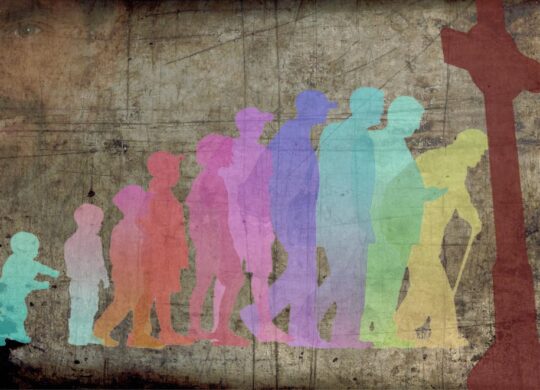Lifespan?

According to an analysis from the Institute for Health Metrics and Evaluation’s Global Burden of Disease study, a research effort based at the University of Washington, Americans are living longer, but are living shorter in good health.
After all, medical advances are being made daily. Medical technology is improving. Medical formularies are growing. Medical research is bounding forwards. Diseases that would have killed us are being conquered.
Despite all of those positive factors, there are always the negatives countering the positives—the threat of obesity, diabetes, cardiovascular issues, and substance-abuse disorders that are negative.
So, yes, we may be living longer, but that doesn’t translate to longer healthy lives! And declining health takes a deep physical and emotional toll on patients, relatives, and caregivers. Not to mention the repercussions for society at large, including rising health costs and a decreasing work force.
Declared S. Jay Olshansky, an aging researcher (I don’t know if he is aging, but he does research on aging) and professor of public health at the University of Illinois at Chicago, in a report in the Wall Street Journal:
The more years of old age we get, the more opportunity we have to develop one or more age-related conditions—a consequence of success, not failure.”
In the Institute for Health Metrics and Evaluation data, life expectancy from birth increased from 75.6 years in 1990 to 77.1 years in 2021. But a healthspan, years of health, or healthy-life expectancy, a measure of how many years we can expect to enjoy good health? That fell from 64.8 years to 64.4 years in the same period.
Nice concept: Healthspan. The number of years we live, feeling good, unencumbered by disability or disease, free to undertake things we love to do. Travel. Sports. Hobbies. More work. Grandkids.
In 2018, roughly 27% of U.S. adults had multiple chronic conditions, up from about 25% in 2012 and 22% in 2001, according to a Centers for Disease Control and Prevention study.
Of course, it is also possible that with all these medical advances, especially increased surveillance and diagnostic sensitivity, health officials are finding more cases of diseases that they previously missed,
The WSJ mentioned Kathie McClure, an 81-year-old who lives in a senior living community in Goleta, California. She asserted that being active and a part of her community is much more important to her than living for a long time. Still largely in good health, she hikes, gardens, volunteers as a docent at her local botanical garden and goes on walks with her son’s dog, a mutt called Patrick. The good lady affirmed that she has no desire to live beyond the ability to perform and enjoy the daily activities she loves.
If I can’t play pickleball, I don’t want to be here.”
Hmm ….
But I can see where she is coming from.
Be gracious to me, Yahweh, for I am distressed;
weakened by provocation is my eye, my soul and my insides [too].
For it is spent in torment, my life, and my years in groaning;
it has stumbled because of my iniquity—my ability, and my bones, they have weakened.
Psalm 31:9–10
Bottom line …
But I—in You I trust, Yahweh; I said, “You [are] my God.”
In Your hand are my times …
Psalm 31:14–15
Yes, indeed. So …
Blessed be Yahweh,
for He has shown the wonder of His lovingkindness to me!
Psalm 31:21
And …
Be strong and let your heart be courageous, all who wait on Yahweh.
Psalm 31:24
SOURCE: Wall Street Journal












 Abe Kuruvilla is the Carl E. Bates Professor of Christian Preaching at The Southern Baptist Theological Seminary (Louisville, KY), and a dermatologist in private practice. His passion is to explore, explain, and exemplify preaching.
Abe Kuruvilla is the Carl E. Bates Professor of Christian Preaching at The Southern Baptist Theological Seminary (Louisville, KY), and a dermatologist in private practice. His passion is to explore, explain, and exemplify preaching.